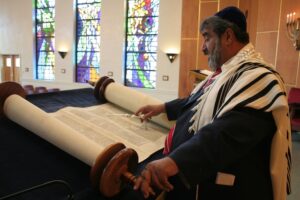Unlike most other high schools, students at Bedford High School have the opportunity in their sophomore year to challenge themselves by taking AP US History and AP Literature. However, the curriculum abruptly switches to that of IB once they enter their junior and senior years. Upon interviewing current juniors on their understanding of the difference between AP and IB, it is generally agreed that the primary difference between the two is that the AP curriculum is focused more on memorization than the IB curriculum is. For example, whereas AP US History requires students to read an average of 50 pages per chapter and memorize up to 80 terms or more, IB History only requires students to read an average of 20 pages per chapter and memorize at most 40 terms. What’s more, though both classes quiz students on their readings every other class, AP quizzes students on considerably more specific terms than IB’s big-picture questions. Junior Riley Mularien sums up the main difference between the two. “AP is a lot of memorization…and IB is more about group work and understanding the topics versus just packing it in.”
Because of the considerable difference in rigor, there is a bit of adjustment all around. Kids who took AP in their sophomore year may find that they are over-prepared for IB, while students who took American Dream Honors and American Dream PSP may find the workload to be somewhat overwhelming. “The class is a big adjustment because there are people from a mix of all the sophomore humanities classes and not just the people from AP,” says Junior Felicia Walbridge. “I’m sure there are some people who wish they could take a more challenging course.” However, when asked about her preference between the two, she responds, “I would probably say I prefer IB…because it, in my opinion, is easier than AP,” she continues, “…I definitely miss the smaller class dynamic in AP, though.” Junior Riley Mularien believes otherwise. “I think I would be happier if there were more AP classes,” she says, “because AP tests give you college credit after only one year versus taking a two-year course to get credit for IB.”
In the face of these major differences highlighted by students at Bedford High, it is important to keep in mind that colleges consider AP and IB to be at the same level, despite their different approaches to learning. After all, everyone learns differently, as shown by the variations in students’ preferences of AP or IB curriculums.





Be First to Comment